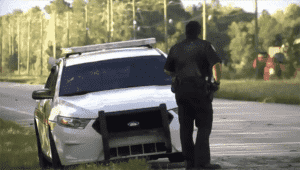
When you are in a car accident and your vehicle is damaged, it may never regain its full market value even after repairs. This loss in value, known as diminished value, can significantly impact your investment. Florida’s diminished value law allows vehicle owners to seek compensation for the loss in market value resulting from an accident, beyond just the cost of repairs.
Navigating these claims can be complex, involving intricate calculations and negotiations with insurance companies. Our Fort Lauderdale car accident lawyers will guide you through the essentials of diminished value, explain how it is calculated in Florida, and provide practical steps for filing a successful claim. Whether you’re dealing with the aftermath of an accident or just want to be prepared, knowing your rights under Florida’s diminished value law is essential to protect your vehicle’s worth.
Why Is Diminished Value Important?
A car that has been in an accident is not as desirable to potential buyers. After you have been in an accident, your car immediately and permanently loses value. This is especially concerning if your car is a luxury vehicle, as your car can lose value very quickly.
This is true even if:
- The accident was not your fault
- The damage was very minor
- You get the car fixed by a reputable, competent mechanic
This phenomenon is called diminished value or diminution in value. If you try to sell or trade-in your car, you could be forced to accept much less than you would have received had you not been in the accident.
It is unfair that you, as the accident victim, should continue to suffer financial losses due to someone else’s negligence. Fortunately, there are ways for you to seek reimbursement for present and future damages.
Types of Diminished Value Claims
After a car accident, the damage to your vehicle vehicle damage may lead to one of the following types of diminished claims:
- Immediate diminished value occurs right after an accident, before any repairs are made. This type represents the initial loss in value due to the vehicle’s damage, reflecting its reduced worth on the market as a damaged vehicle.
- Inherent diminished value is the most commonly discussed type. It refers to the loss in value even after repairs are completed. Potential buyers may perceive the vehicle as less valuable simply because it has a history of damage, regardless of how well the repairs were done.
- Repair-related diminished value arises from the quality and extent of the repairs themselves. If the repairs are subpar or fail to restore the vehicle to its pre-accident condition, the vehicle suffers additional loss in value. This type accounts for any remaining defects, mismatched paint, or structural issues that detract from the vehicle’s overall market value.
A diminished value claim is separate from your more standard personal injury lawsuit after an accident, but it is no less important. If your car has significant dames, especially if it’s a high-value vehicle, you can seek legal help for a diminished value claim or lawsuit.
Diminished Value Law in Florida
Florida recognizes the concept of diminished value, allowing vehicle owners to seek compensation for the loss in market value after their car has been repaired post-accident. Florida law permits claims for diminished value, acknowledging that a vehicle, even after quality repairs, may still lose market value due to its accident history.
This recognition is particularly relevant in third-party claims, where the at-fault party’s insurance company is responsible for compensating the diminished value. However, first-party claims, involving the vehicle owner’s own insurance, are typically more complex and often not covered unless specifically stated in the policy.
Florida’s stance on diminished value is not outlined in a single statute but is derived from general principles of property damage and compensation. Vehicle owners must carefully review their insurance policies and consider seeking professional appraisals and legal advice to effectively pursue diminished value compensation in Florida.
How Diminished Value is Calculated in Florida
Calculating diminished value in Florida involves assessing various factors to determine how much a vehicle’s market value has decreased after an accident, even after repairs are completed.
Vehicle owners are deprived of their cars during the repair period. This may have a significant impact if the vehicle has a high rental replacement cost. For many cars, the market value decreases drastically because potential buyers are wary of purchasing a vehicle with an accident history. The resale value drops significantly, justifying a substantial diminished value claim.
Factors Affecting Diminished Value Calculation
The age and pre-accident condition of a vehicle are crucial in calculating diminished value. Newer and well-maintained vehicles typically experience a higher loss in value compared to older, high-mileage cars.
The severity and type of damage significantly influence the diminished value. For example, when it comes to luxury sports cars, even minor damages can lead to a substantial decrease in value due to the precision and high standards expected in their condition.
The current market trends for specific vehicle models also play a role. In the example of a luxury sports car, these vehicles tend to depreciate rapidly if they have a history of accidents, as potential buyers are often unwilling to pay premium prices for vehicles with repaired damages.
Common Methods of Calculating Diminished Value
When trying to get you the most out of your claim, these methods may be used to calculate an offer:
- 17c Formula: This formula is often used by insurance companies. It starts with a base loss value, typically 10% of the vehicle’s pre-accident value, which is then adjusted for factors such as the severity of the damage and the vehicle’s mileage.
- Market-Based Approaches: These approaches involve comparing the pre-accident and post-repair market values of the vehicle. For luxury cars, for example, this might involve consulting sales data and market trends specific to high-end models.
- Professional Appraisals: Hiring a professional appraiser can provide a detailed and accurate diminished value assessment. Appraisers consider the specific characteristics of luxury vehicles and the nuances that affect their market value post-repair.
In Florida, understanding these calculation methods and factors can help vehicle owners, especially those with luxury cars, secure fair compensation for the significant loss in value that follows an accident.
Challenges and Considerations Following a Diminished Value Case
Navigating diminished value claims can be challenging due to several common obstacles. Insurance companies often resist paying these claims, arguing that the repairs restore the vehicle’s value or disputing the calculation methods used. They may offer low settlements or deny the claim altogether, making it essential to be well-prepared.
Legal representation is crucial in overcoming these challenges. Our car accident attorneys can effectively negotiate with insurers, present compelling evidence, and ensure your rights are protected. They can also guide you through the legal intricacies and help build a strong case.
To maximize the success of your claim, gather comprehensive documentation, including repair invoices, market value appraisals, and expert opinions. Be persistent and meticulous in your approach. Using professional appraisals and staying informed about your rights under Florida law can significantly enhance your chances of receiving fair compensation for your vehicle’s diminished value.
Call for Help With a Diminished Value Claim
When vehicle damage hurts the value of your car, you can seek help. Call the Law Offices of Anidjar & Levine now to get started. We want to offer responsive legal help that will get you the payout you need.










